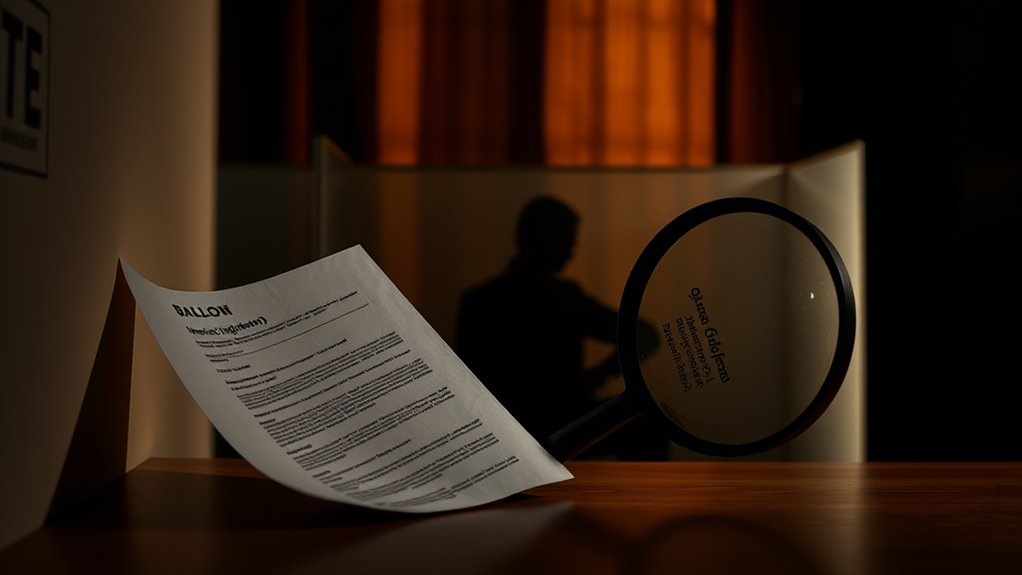Key Takeaways:
- Media narratives significantly influence public perception by distorting facts.
- Understanding the underlying mechanisms of these narratives can empower communities.
- There is more to the story that impacts your voice, vote, and our collective future.
Unveiling the Hidden Influences on Elections
You might think elections are rigged because of rampant voter fraud, but that’s just part of the smoke and mirrors. The real game-changer? Media narratives that twist facts and tilt perceptions. They’ve mastered the art of distraction, and it’s time we focus on the truth to empower our communities.
But wait—there’s more to this story that affects your voice, your vote, and our collective future.
Ready to uncover the real deal?
The Myth of Widespread Voter Fraud
When it comes to the myth of widespread voter fraud, it’s important to cut through the noise and focus on the facts. Voter impersonation is remarkably rare, with incident rates between 0.0003% and 0.0025%.
Out of over a billion ballots cast from 2000 to 2014, only 31 credible cases of impersonation surfaced.
These election myths can mislead, but understanding the truth empowers you. Double voting is equally minimal, with 2012 rates capped at 0.02%, often overstated due to measurement errors. Studies consistently reveal no widespread impersonation fraud, even reporting zero instances in some areas.
The perception of election fraud persists among many due to a crisis of trust, leading individuals to rely on suspicions instead of concrete evidence.
Media Influence on Public Perception
Perception is power, and you know how the media can shape it. Media bias can skew public opinion, giving some candidates unfair advantages.
By focusing on who’s ahead, horse-race coverage breeds mistrust and cynicism. This distracts from the real issues that matter to you.
Partisan news outlets often deepen social polarization, turning political discourse into a battlefield. Misinformation spreads fast on social media, impacting electoral engagement by misleading voters.
Influencers can sway opinions, sometimes pushing parties to change positions. Yet, they often polarize society further.
As candidates engage directly with you via these platforms, traditional media filters become less relevant. Your understanding of these dynamics empowers you to steer through the noise and make informed decisions.
Protecting Election Integrity and Trust
You’ve seen how the media can play a role in shaping perceptions, but the real power lies in guaranteeing your vote counts and your voice is heard.
Protecting election integrity means adopting audit transparency and robust cybersecurity measures. With election infrastructure now considered “critical”, it’s vital to implement layered defenses like Zero Trust and regular system testing.
This approach not only safeguards your vote but also fortifies the democratic process.
Transparent audits, backed by paper trails, verify that every vote is counted accurately. Proactive cybersecurity and clear regulatory frameworks guarantee that our elections remain secure and credible.
As culture-conscious entrepreneurs and professionals, staying informed and advocating for these measures empowers you and strengthens your community’s voice in the democratic process.
See Beyond the Myths
The real rigging isn’t in counting the votes; it’s in the stories and narratives that shape what you believe. Media bias and misinformation can make you second-guess the fairness of our democratic processes.
Here’s a thought to consider: by understanding these influences, you’re gaining the upper hand.
So, why not use this insight to question the narratives being fed to you and demand more transparency?
With this knowledge, you can help uplift your community to ensure every voice is not only heard but also genuinely counted.
Let’s make sure we’re not just passive participants but active challengers in the democratic process.










